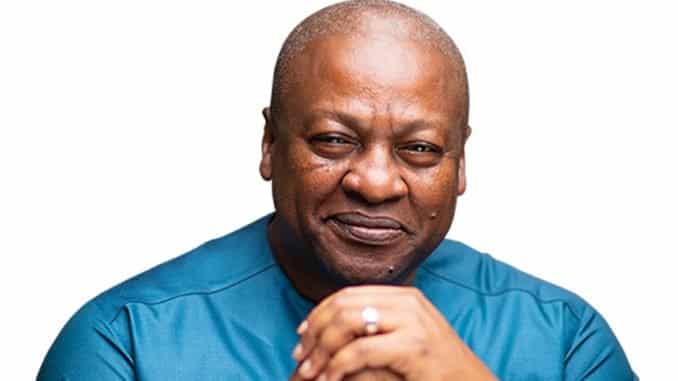From
a
constitutional
and
legal
perspective,
whether
John
Dramani
Mahama
can
extend
his
presidency
beyond
the
upcoming
term
requires
examining
Ghana’s
1992
Constitution,
particularly
the
entrenched
provisions
and
amendment
processes.
Below
is
a
detailed
analysis
from
a
lawyer’s
perspective:
Understanding
Entrenched
Provisions
in
the
Constitution
The
Constitution
classifies
certain
provisions
as
“entrenched,”
meaning
they
are
shielded
from
ordinary
legislative
changes
and
require
a
rigorous
process
for
amendment.
Article
66(2)
of
the
Constitution
provides:
“A
person
shall
not
be
elected
to
hold
office
as
President
of
Ghana
for
more
than
two
terms.”
This
is
an
entrenched
provision,
and
any
attempt
to
amend
it
must
follow
the
specific
procedure
outlined
in
Article
290.
Amendment
Process
for
Entrenched
Provisions
Article
290
lays
out
the
steps
for
amending
entrenched
provisions:
Proposal
by
Parliament:
A
constitutional
amendment
bill
must
first
be
introduced
in
Parliament.
For
the
bill
to
progress,
it
must
receive
the
support
of
two-thirds
(2/3)
of
all
Members
of
Parliament
(MPs).
Council
of
State
Review:
After
passing
Parliament,
the
bill
is
referred
to
the
Council
of
State,
which
must
review
and
provide
recommendations
within
30
days.
National
Referendum:
After
the
Council
of
State’s
input,
the
proposed
amendment
must
be
subjected
to
a
national
referendum.
For
the
referendum
to
be
valid:
At
least
40%
of
registered
voters
must
participate.
Of
those
participating,
at
least
75%
must
vote
in
favour
of
the
amendment.
IMG
3496
Presidential
Assent:
If
the
referendum
is
successful,
the
amendment
bill
is
presented
to
the
President
for
assent,
after
which
it
becomes
law.
This
process
is
lengthy,
complex,
and
designed
to
ensure
broad-based
public
approval
for
significant
constitutional
changes.
Implications
for
Mahama’s
Presidency
Scenario
1:
As
John
Mahama
As
Won
This
Year’s
Election
As
John
Mahama
has
won,
it
will
mark
his
second
term
under
the
constitutional
framework.
This
means
he
reaches
the
limit
set
by
Article
66(2)
and
cannot
run
again
unless
the
Constitution
is
amended.
Scenario
2:
Can
Parliament
Alone
Extend
His
Term
Beyond
Two?
No,
Parliament
alone
cannot
amend
entrenched
provisions,
even
with
a
two-thirds
majority.
The
national
referendum
requirement
under
Article
290
is
mandatory.
Without
it,
any
extension
would
be
unconstitutional.
Scenario
3:
If
the
Entrenched
Provision
is
Amended
via
Article
290
Hypothetically,
if
the
constitutional
amendment
process
is
initiated
and
successful,
the
term
limit
could
be
adjusted.
However:This
would
require
overwhelming
political
consensus
in
Parliament
(2/3
majority)
and
the
public
(75%
approval
in
a
referendum).
Given
the
political
and
democratic
culture
in
Ghana,
extending
term
limits
is
likely
to
face
significant
public
and
civil
society
opposition.
Legal
and
Political
Challenges
Legal
Considerations
The
Constitution’s
framers
deliberately
entrenched
term
limits
to
prevent
authoritarian
tendencies
and
ensure
the
rotation
of
power.
Any
move
to
amend
this
provision
would
be
scrutinized
by
the
Supreme
Court,
which
has
historically
protected
the
Constitution’s
integrity.
Political
Considerations
Extending
term
limits
could
lead
to
public
discontent,
protests,
and
allegations
of
democratic
backsliding.
Political
opposition
and
civil
society
groups
would
likely
mobilize
against
such
an
amendment,
framing
it
as
self-serving.
Precedents
in
Ghana
and
Globally
Ghana
has
no
precedent
for
extending
presidential
term
limits,
which
have
been
strictly
observed
since
the
Fourth
Republic.
Globally,
attempts
to
extend
term
limits
in
other
democracies
(e.g.,
Uganda,
Russia,
and
Rwanda)
have
often
led
to
accusations
of
authoritarianism
and
political
unrest.
Conclusion
From
a
legal
standpoint,
John
Mahama
cannot
extend
his
presidency
beyond
the
next
term
unless
the
entrenched
provisions
of
the
Constitution
are
amended
following
Article
290’s
rigorous
requirements.
Even
with
a
two-thirds
majority
in
Parliament,
the
amendment
would
still
require
a
national
referendum
with
overwhelming
public
approval—a
highly
unlikely
outcome
given
Ghana’s
strong
democratic
traditions
and
public
resistance
to
term
limit
changes.
For
Ghana,
a
move
to
amend
presidential
term
limits
would
face
not
only
legal
hurdles
but
also
significant
political
and
social
opposition,
making
it
an
exceedingly
difficult
and
controversial
endeavour.

